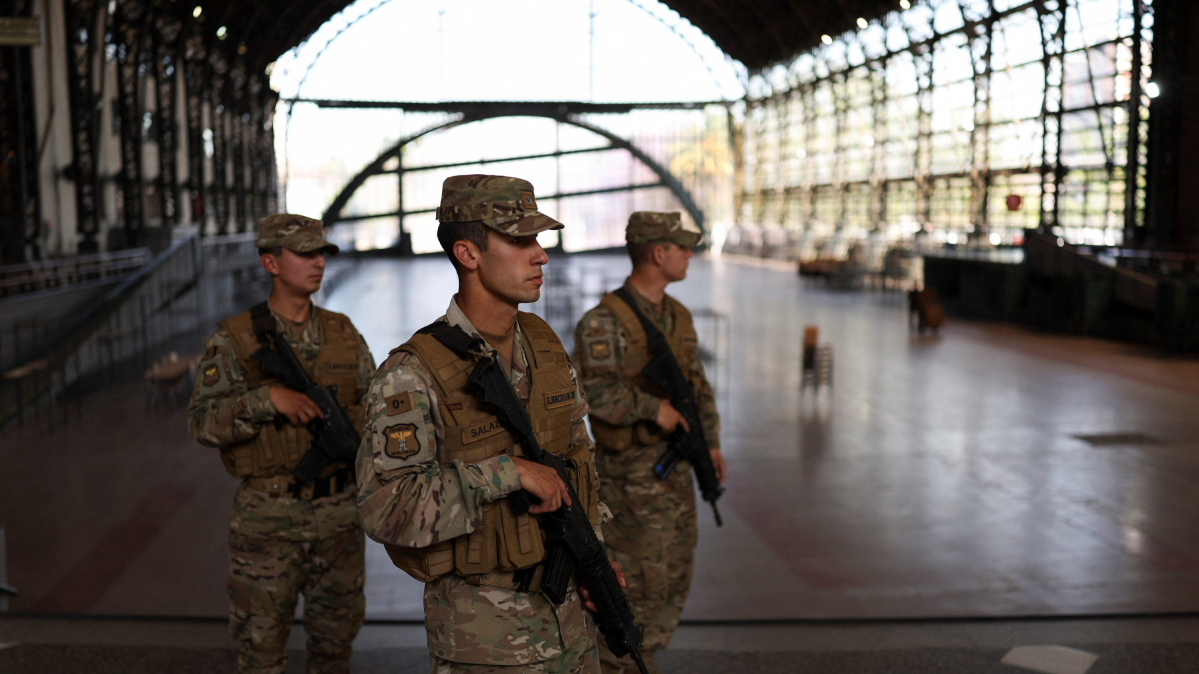Bill Clinton says Trump recalled ‘good times’ with Epstein
Former U.S. President Bill Clinton told lawmakers that President Donald Trump told him he had "some great tim...

Chileans headed to the polls on Sunday in a presidential election that pits the governing left-wing coalition against a wide field of right-wing contenders, in a vote that will also reshape the country’s legislature.
Eight candidates are in the running, and none is expected to secure the required 50% plus one vote to win outright, making a run-off between the top two contenders on 14 December highly likely.
Opinion polling is prohibited in the final 15 days before the vote, but the last surveys showed Jeannette Jara, the governing coalition’s Communist Party candidate in first place, followed by far-right Republican Party hopeful José Antonio Kast.
Evelyn Matthei, an experienced centre-right politician and former mayor and senator, had an early lead but slipped in recent months and is now trading third place with libertarian firebrand Johannes Kaiser of the National Libertarian Party.
Polling stations across Santiago, most of them in schools saw steady, orderly queues throughout the morning.
Samanta Paredes, a 30-year-old first-time voter in the capital’s historic centre, said she hoped the election would unfold peacefully and deliver a more balanced political course.
“I hope someone more centrist wins — extremes are never good for anyone,” she said.
German Rojas, a 33-year-old law graduate, echoed her sentiment, saying unity was needed over division.
“I’m not sure which candidate has the upper hand. But I hope whoever wins has the capacity Chile needs,” he said.
Polls are due to close at 6 p.m. (21:00 GMT), although they will remain open if queues persist. Preliminary results are expected quickly, with a full count delivered within hours.
Crime and migration have dominated this campaign, a marked shift from the left-wing optimism and constitutional ambitions that propelled current President Gabriel Boric to office.
Boric, who cannot stand for re-election, has seen candidates from across the spectrum emphasise tough-on-crime messages as they left their polling stations.
“People don’t dare go out to see friends or go to the cinema because of crime," Matthei told reporters. "There is so much we need to do,” he added.
Another major change this year is compulsory voting for the 15.7 million registered voters. With 53% abstaining in the previous first-round vote, the sudden influx of formerly disengaged or undecided voters adds a significant element of unpredictability.
“This is an unprecedented scenario, and it’s unfolding in a presidential election,” said Guillermo Holzmann, a political analyst at the University of Valparaíso. He noted that recent elections in Argentina, Bolivia and Ecuador saw pollsters miss the mark.
“New voters don’t think in terms of left, right or centre. They think in terms of what changes are needed and what benefits them.”
Much of Congress is also up for election, including the entire 155-seat lower house and 23 of the 50 Senate seats.
The governing left-wing coalition currently holds a minority in both chambers. Should the right win majorities in both houses and the presidency, it would mark the first time since the end of Augusto Pinochet’s dictatorship in 1990 that conservatives control all branches of elected government.
Follow the latest developments and global reaction after the U.S. and Israel launched “major combat operations” in Iran, prompting retaliation from Tehran.
Saudi Arabia’s state oil giant Saudi Aramco closed its Ras Tanura refinery on Monday following an Iranian drone strike, an industry source told Reuters as Tehran retaliated across the Gulf after a U.S.-Israeli attack on Iranian targets over the weekend.
The Kremlin is utilising the recent United States and Israeli military strikes on Iran to validate its ongoing war in Ukraine. Russian officials are pointing to the escalation in the Middle East as evidence that Western nations do not adhere to international rules.
The Middle East crisis intensifies after the deadly attack on the compound of the Supreme Leader of Iran Ali Khamenei on Saturday that killed him, other family members and senior figures. Iran has launched retaliatory strikes on U.S. targets in the region.
Ayatollah Alireza Arafi has moved into a pivotal constitutional role following the death of Supreme Leader Ayatollah Ali Khamenei, becoming the clerical member of Iran’s temporary leadership council under Article 111 of the Constitution of the Islamic Republic of Iran.
Former U.S. President Bill Clinton told lawmakers that President Donald Trump told him he had "some great times" with convicted sex offender Jeffrey Epstein before their relationship soured, according to a video released on Monday (2 March).
The U.S.-Iran crisis has entered its third day, with further strikes reported across the Middle East and the death toll rising. Oil prices have surged to levels last seen during the Covid-19 pandemic, raising fears of economic disruption and higher prices worldwide.
The UK said it's allowing the U.S. to use its bases for defensive strikes against Iran amid escalating missile attacks, after a suspected drone strike hit a British airbase in southern Cyprus, causing limited damage.
The Kremlin is utilising the recent United States and Israeli military strikes on Iran to validate its ongoing war in Ukraine. Russian officials are pointing to the escalation in the Middle East as evidence that Western nations do not adhere to international rules.
European Union stands with its member states in the face of any threat, EU Commission President Ursula von der Leyen said in response to the drone strike that hit Britain's Royal Air Force base of Akrotiri in southern Cyprus overnight.
You can download the AnewZ application from Play Store and the App Store.

What is your opinion on this topic?
Leave the first comment